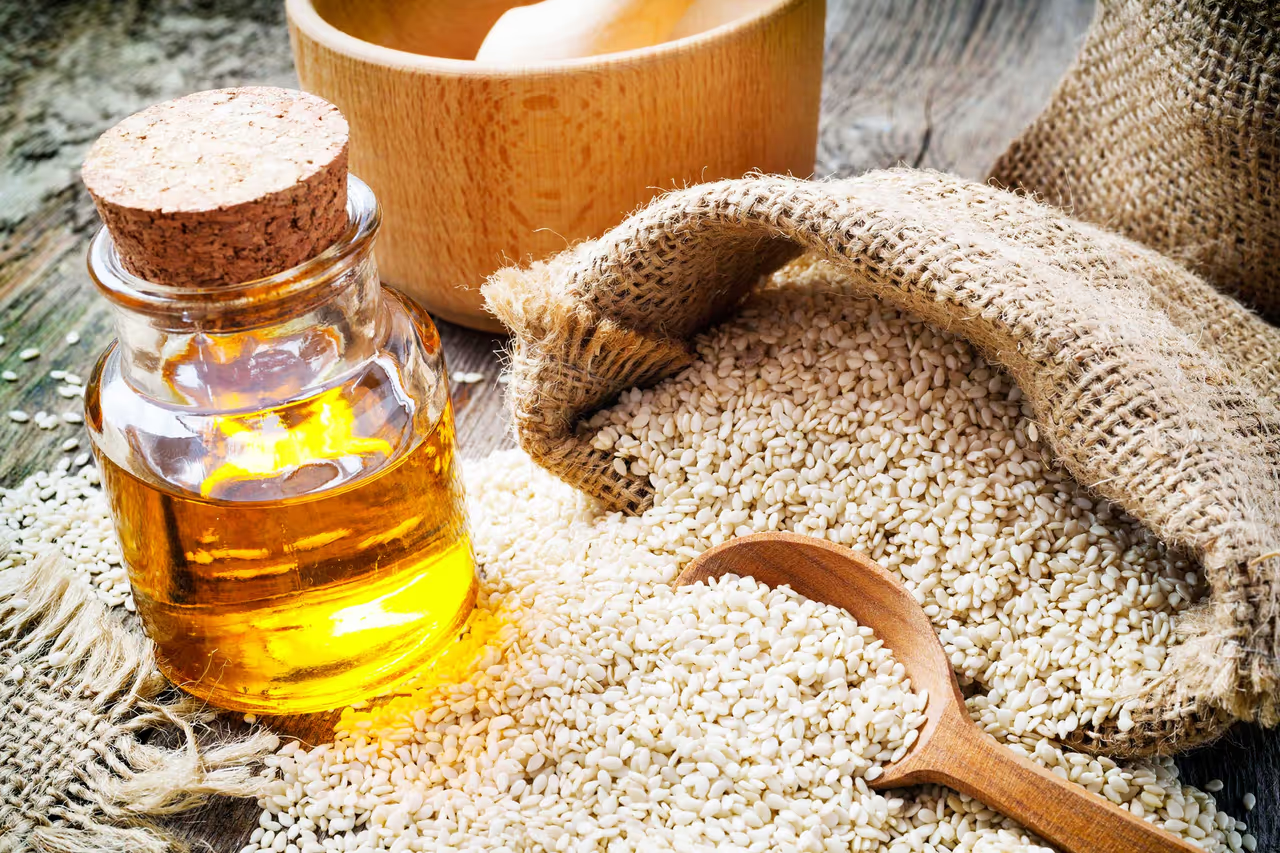- Home
- Lifestyle
- Sesame oil: Natural SPF, stress buster and more, amazing benefits of this unpopular oil
Sesame oil: Natural SPF, stress buster and more, amazing benefits of this unpopular oil
In Ayurveda, sesame oil is valued for its medicinal properties. It is said to be good for the skin, and often used for massages as it penetrates deep into the skin to provide nourishment and helps relieve stress.

In most Indian households, you will often find a bottle of sesame oil stored in a corner of the kitchen shelf. We have a certain fondness for it, and use it lovingly while preparing our precious pickles or special subzis.

It is a flavour booster and the distinct nutty taste blends in well with the various mixes of spices that are synonymous with Indian cooking. It is said that sesame oil was first extracted during the Indus Valley Civilization and thereon was introduced to other parts of Asia and the world.
Today, it is deemed as one of the healthiest oils, loaded with essential nutrients. Compared to other cooking oils available in the Indian market, sesame oil somehow lags behind in popularity. We mostly use it for specific recipes and not as an everyday option. Perhaps this is to do with its relatively low smoke point as opposed to the use of high heat while preparing Indian dishes.
In Ayurveda, sesame oil is valued for its medicinal properties. It is said to be good for the skin, and often used for massages as it penetrates deep into the skin to provide nourishment and helps relieve stress. It is considered to be good for the hair as well, and also used as a carrier oil for different cosmetics. Here’s what makes it good for you.
High Source of Unsaturated Fats: Unlike butter and desi ghee which come loaded with harmful saturated fat, sesame oil primarily contains unsaturated fats. According to the nutritional value chart of sesame oil, per 100 grams contain 40 grams monounsaturated fats, 42 grams polyunsaturated fats and about 14 grams saturated fats.
Helps in Rheumatoid Arthritis: Don’t go by the size because sesame seeds are a powerhouse of vitamins and minerals. They are loaded with copper, zinc, magnesium, iron and calcium. While sesame oil may not contain as much nutrients as the seeds because some amounts of it are lost during the extraction process, they still retain most beneficial properties. It is particularly known for its zinc and copper contents, which help in the production of red blood cells, blood circulation and metabolism. Copper is also known for its anti-inflammatory properties, and helps reduce arthritis pain, swelling of joints and strengthens the bones.
Lowers Blood Pressure: It is not without reason that in the ancient times sesame oil was used commonly in cooking. According to a study by an Indian researcher from Annamalai University and published in Yale Journal of Biology and Medicine, “Sesame oil as edible oil lowers blood pressure, decreases lipid peroxidation, and increases antioxidant status in hypertensive patients.”
Great for the Skin: Sesame oil is valued in Ayurveda because of its antibacterial and anti-inflammatory properties. It is commonly used in beauty treatments for the skin because it is an excellent moisturiser, promotes regeneration of healthy skin, has anti-aging properties, and is considered to be a natural SPF. It is also used extensively as a massaging oil because of its warming property and its ability to seep deep into the skin.
Helps Fight Stress and Depression: Sesame oil contains an amino acid known as tyrosine, which is directly connected to serotonin activity. Serotonin is a neurotransmitter which impacts our mood. An imbalance of it could lead to depression and stress. According to experts, consuming foods that help in the production of serotonin helps in feeling positive, keeping chronic stress at bay. Sesame oil is a good example of that.
Oil Pulling for Oral Health: Oil pulling is an ancient Ayurvedic technique which is followed for promoting oral health and removing plaque. A tablespoon of oil is taken on an empty stomach and swished around in the mouth for 20 minutes and then spat out. It is believed to remove toxins from the body. Sesame oil is commonly used for this practice because of its medicinal properties.
Explore the latest Lifestyle News covering fashion, wellness, travel, Food and Recipes, and more. Stay updated with trending Health News, fitness tips, and expert insights to inspire your daily living. Discover personalized lifestyle trends that keep you stylish and informed. Download the Asianet News Official App from the Android Play Store and iPhone App Store for everything that adds value to your everyday life.